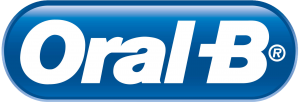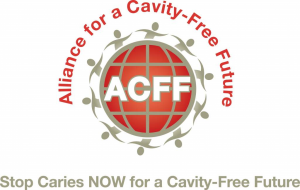
Constitution
Registration at the General Electronic Commercial Registry:131194101000/14/07/2014
“ARTICLES OF ASSOCIATION
OF THE NON-PROFIT MAKING CIVIL LAW COMPANY WITH THE
CORPORATE NAME
“EUROPEAN ACADEMY OF PAEDIATRIC DENTISTRY”
CHAPTER A’
NAME– REGISTERED OFFICE – OBJECTIVES – DURATION
______________________
ARTICLE 1.
NAME
The name of the Company is “European Council of Paediatric Dentistry”. In English language the Company will be known as “European Academy of Paediatric Dentistry” for its relations abroad, hereinafter it will be called in the present as “the Academy”.
ARTICLE 2.
REGISTERED OFFICE
The registered office (seat) of the Academy will be within the Municipality of Chalalndri at Kodrou street no 22. The Academy will be able to establish branches, agencies or offices that will represent the Academy in other cities of Greece or abroad, as well as convey the registered offices of the Academy to any other address within the Prefecture of Attica in order to serve its objectives.
ARTICLE 3.
DEFINITION, PURPOSE AND OBJECTIVES
DEFINITION OF PAEDIATRIC DENTISTRY: Paediatric Dentistry is the practice, and teaching of and research in comprehensive preventative and therapeutic oral health care of children from birth through adolescence. It shall be construed to include care beyond the age of adolescence for special patients who demonstrate mental, medical, physical, social and/or emotional problems.
PURPOSE AND OBJECTIVES: The European Academy of Paediatric Dentistry is an organisation of individuals whose primary concern is in the area(s) of practice, education and/or research specifically related to the specialty of Paediatric Dentistry. Its purpose shall be the advancement of the specialty of Paediatric Dentistry for the benefit of the oral health of children.
The attainment of the fulfilment of its expressed purpose shall be achieved by dedication to the following objectives:
- The Academy shall be the symbol of excellence in practice, education and research in Paediatric Dentistry.
- The Academy, when required, shall co-operate with other dental organizations, allied health professions, government and private agencies concerned with the dental health of the public.
- The Academy shall actively involve itself in the development and implementation of national programmes of dental health for children.
- The Academy shall foster the development and promulgation of sound tenets for Paediatric dental procedures through study and research accompanied by constant critical evaluation and review.
- The Academy shall be the principal vehicle for providing all of its members an opportunity to improve their knowledge of all facets of Paediatric Dentistry.
- The Academy shall actively participate in the development and delivery of programmes of continuing education in the field of Paediatric Dentistry for the Academy per se, and for the dental profession as a whole.
- The Academy shall constantly strive to enhance the quality of undergraduate and postgraduate education training in Paediatric Dentistry through its availability in a consultative capacity to the graduate dental training centres and dental schools throughout Europe.
- The Academy shall be ever alert to its responsibility to children and the dental profession in the fulfilment of its obligation in the matter of the prevention and control of oral disease in children.
- The Academy will strive to promote Paediatric Dentistry in European and bordering countries where it is less developed by means of its own funding and in cooperation with local officials.
ARTICLE 4
DURATION
The duration of the Academy is for an indefinite period.
CHAPTER B’
FINANCES, MANAGEMENT, REPRESENTATION, GENERAL ASSEMBLY, TERMINATION
_____________________
ARTICLE 5
FINANCES RECOURSES - CONTRIBUTIONS
The initial contribution to the Company is set in ten Euros (10€) in total, with a contribution of 1 Euro (1€) of each partner. For the achievement of the objectives of the Academy the members agree to contribute to the Academy annual contributions the amount and method of which will be determined by the Academy’s General Assembly and its By-Laws. Apart from the contributions the recourses of the Academy can be the result of:
5.1. Fees from the members of the Academy to cover the costs of the Academy with respect the incorporation costs and other operational costs.
5.2. Donations, sponsorships, heritages, presents, bequests from both natural and legal persons, European Union and national subsidies and financing, grants from international organisations and public or private companies that are give in support of the Academy’s objectives.
5.3. Income resulting from the Academy’s activities in the achievement of its objectives.
5.4. Participation in European, national and international programs.
5.5. All and every income/contribution etc. the acceptance of which that does not conflict with the objectives of the Academy, the applicable legal provisions, the present articles of association and the By-laws of the Academy.
ARTICLE 6
BOARD OF DIRECTORS
The Board of Directors of the Academy consists of five (5) members.
6.1. The composition of the Board of Directors consists of, the President, and legal representative of the Academy, the President-Elect, the Past President, the Secretary and the Treasurer. All five (5) members of the Board of Directors are elected by the General Assembly of the Academy along with two (2) substitutes. All other matters not addressed to in the present Articles of Association related to the Board of Directors will be dealt by the Academy’s By-laws.
6.2. The members of Board of Directors are collectively responsible for the affairs of the Academy except if they participated at a decision making process of the Board they expressed their disagreement and their disagreement was recorded at the Board minutes.
6.3. The Board of Directors manages the affairs of the Academy.
6.4. The Board of Directors implements the decisions of the General Assembly.
6.5. The Board of Directors with its President and Secretary convokes the meetings of the General Assembly
6.6. The Board of Directors is responsible for the upholding provisions of the Articles of Association and the Bylaws.
6.7. The Board of Directors informs the public authorities for issues which are required by the law.
ARTICLE 7
GENERAL ASSEMBLY
7.1. The General Assembly has all the competence and is the highest body of the Academy. Through the General Assembly the members of the Academy express their will. When the General Assembly is in session all the issues stated in the agenda will be discussed.
7.2. The General Assembly consists of the Chairman of the General Assembly, the Vice-Chairman and the Secretary which are elected from the members of the Academy who participate at the General Assembly and at the beginning of the General Assembly’s meeting.
7.3. The issues that can be addressed by the General Assembly indicatively are:
- The approval of the balance sheet and the annual financial statements
- The election of a Board of Directors
- The amendment of the Articles of Association and the Bylaws
- The duration of the Academy
- The dissolution of the Academy
- The appointment or the revocation of the Board of Directors
- The payment of additional contributions to the Academy The Bylaws of the Academy will further elaborate with respect the powers of the General Assembly.
The Bylaws of the Academy will further elaborate with respect the powers of the General Assembly.
ARTICLE 8
TERMINATION OF THE ACADEMY
The Academy is dissolved:
- If its objectives for which it was established become impractical or unattainable or
- By decision of the General Assembly.
ARTICLE 9
LIQUIDATION OF THE ACADEMY
9.1. After the decision to dissolve the Academy it follows its liquidation. Liquidator of the Academy will be appointed the President of the Board of Directors at the time of dissolution.
9.2. The liquidator is required to undertake to draw up the inventory of its Academy’s assets, to recover any payments in favour of the Academy and to make payments of any kind on behalf of the Academy. Any remaining assets will be donated to improve dental education and dental research in a non-profit manner which will be determined by the administration of the Academy.
9.3. The liquidator’s services are unpaid, apart from any actual costs which are necessary for the fulfilment of his task.
CHAPTER C
MEMBERSHIP, BYLAWS, STAFF, PUBLICATIONS, OTHER ISSUES
_______________________
ARTICLE 10.
MEMBERSHIP
10.1. The active members of the Academy shall consist of paediatric dentists, with the required qualifications according to the guidelines of the educational program and specialization in Paediatric Dentistry. Members shall also consist of others dentists or scientists whose qualifications and classifications shall be established by its Bylaws.
10.2. The enrolment of new members is permitted following an application which is examined for the existence of the necessary requirements of the applicant from the Secretary to whom it is filed and from the Ethics Committee as provided for in the Bylaws.
10.3. The admission of a new member implies full acceptance of the terms and provisions of the present Articles of Association and the By-Laws of the Academy.
10.4. The expulsion of the enrolled members from the Academy is decided by the General Assembly and the Internal Council of the Academy, in accordance with provisions as set by the Academy’s Bylaws.
ARTICLE 11.
BYLAWS
Upon incorporation of the Academy there will be established a set of internal regulations to be called “Bylaws” where it will address with greater detail the relevant matters in the organisation of the Academy. Indicatively the Bylaws will address issues regarding:
The Membership of the Academy, the Local Organizations, the Biennial Congress, the General Assembly procedures, the Elective Officers, the Internal Council of the Academy, the Appointed Officers, the Standing Committees, the Finances, the Elections, the Code of Professional Ethics and the disciplinary procedures, the prohibition to use the membership in the Academy for personal gain, official publications of the Academy, class rules, the amendment process of the established Bylaws, decision making procedures.
The Bylaws and their amendments thereof are approved by the Academy’s General Assembly.
The amendment of the Bylaws may be proposed by any committee or member of the Academy provided that the proposed amendment is submitted in writing or electronically to the Secretary and the Board of Directors of the Academy, no later than (60) days before the next Board of Directors and Internal Council of the Academy meeting. The Board of Directors and the Internal Council of the Academy may also propose amendments to the Bylaws and then submit them to the Constitution Committee so as to formulate an appropriate wording at least sixty (60) days before the date of the General Assembly in which they will be considered.
At the General Assembly of the Academy the Bylaws may be amended or repealed by a vote of two-thirds (2/3) of the participating members present with voting rights at a ballot in any ordinary General Assembly, or to any extraordinary assembly that has been called for this reason provided that as a precondition for introducing any amendment, that the Constitution Committee will have competently form and express such amendment and a copy of the proposed amendment will be sent to each of the members of the General Assembly no later than thirty (30 ) days before the relevant meeting
ARTICLE 12.
STAFF OF THE COMPANY
To achieve its aims and objectives the Academy may:
- recruit and employ staff on employment contracts for a specified or unspecified period of employment
- enter into agreement with any third party for the provision of any goods and/or services necessary for the proper functioning of the Academy
- establish permanent or ad hoc working groups with or without compensation from its members or from non-members for the promotion of its objectives.
ARTICLE 13.
PUBLICATIONS OF THE ACADEMY
The Academy in order to further its objectives will publish the “European Archives of Paediatric Dentistry” which will be the Academy’s official publication. The Academy will also establish and maintain an official electronic site in the internet which will have the following addresses www.eapd.gr and www.eapd.eu.
ARTICLE 14.
FIRST BOARD OF DIRECTORS
14.1. The first Board of Directors, which term starts with the incorporation of the Academy and ends at the next Ordinary General Assembly of the Academy, consists of five (5) members which are the following:
- Monty Duggal, President
- Paddy Fleming, President Elect
- Norbert Kraemer, Member & Immediate Previous President
- Elias Berdouses, Secretary
- Teresa Leisebach, Treasurer
14.2. The Academy is represented by the President Mr. Monty Duggal, who represents the Academy with his sole signature which is affixed on the corporate name of the Academy and binds the Academy towards all third parties, as it is provided in the Articles of Association, the Bylaws and the Law. The President can give authorizations and proxies and to appoint the other members of the Board of Directors as well as third parties with all or part of his powers of representation and signature.
ARTICLE 15.
CLOSING ARTICLE - APPLICABLE LAW
The present Articles of Association consists of 15 articles including the present. The Academy’s operations are governed by Greek Law. For any matter which is not regulated by the present Articles of Association or the Bylaws, the provisions of the Civil Code (741 ff) apply. For any dispute that may arise between the partners as to the interpretation and/or the application of the present the competent courts are those of Athens.
The present Articles of Association was drafted, read, accepted and signed by the signatories members without reservation from them as follows:



